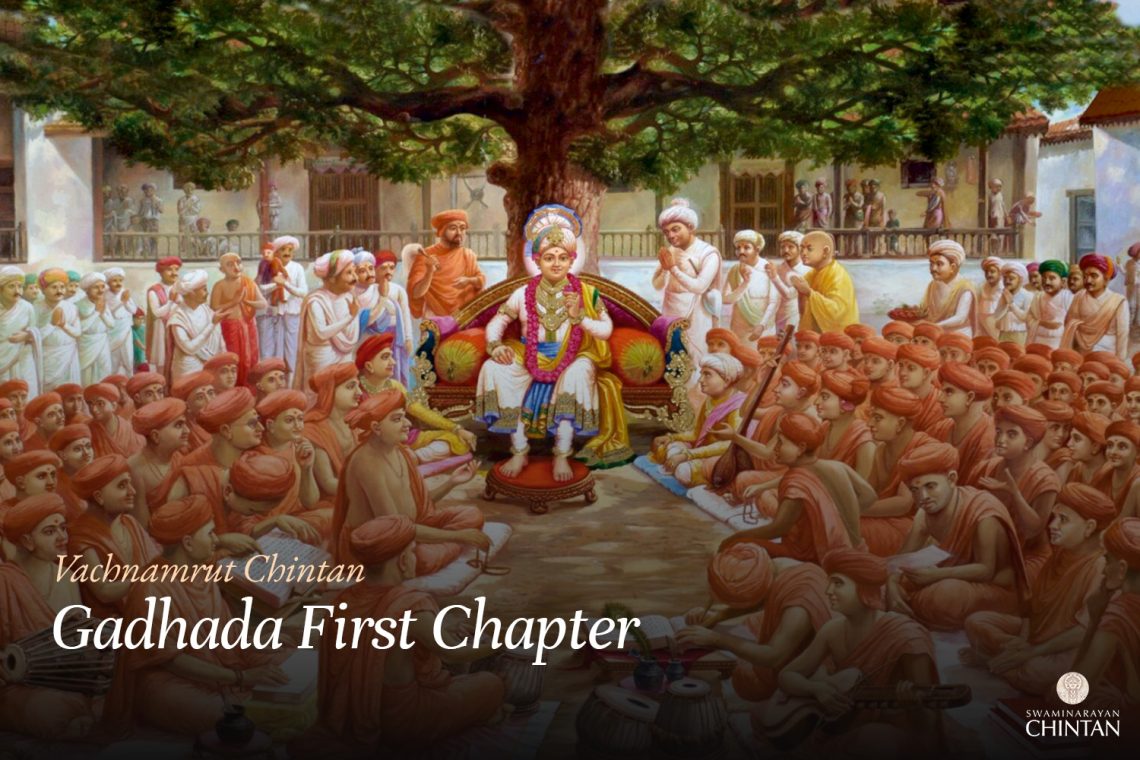Central Insights:
A person who does not appreciate obligations done to him is ungrateful. The company of such a person should be abandoned forthwith.
Key Points:
On one occasion, Shreeji Maharaj is approached by an ungrateful Brahmin named Sevakrām and after some time abandons his company by knowing him ungrateful.
Explanation
Shreeji Maharaj elaborated on one of the incidents that occurred during His pilgrimage to Setubandh Rāmeshwara. Here he meets Sadhu Sevakrām who is on a pilgrimage to Ayodhyā. Sevakrām joins Maharaj in His pilgrimage. Enroute, Sevakrām becomes sick. Sevakrām carried 1,000 gold coins. Despite being well versed in the Scriptures; no one came to his aid and as a result, he began to cry for help. Filled with compassion, Shreeji Maharaj consoled the Sadhu with kind words and reassured him that He will nurse him back to health.
Maharaj took very good care of Sevakrām. Sevakrām was suffering from blood dysentery. This means the loose motions of blood. In consequence, Maharaj built a bed that was well equipped for Sevakrām’s needs. He also cleaned Sevakrām as well. Each day, Sevakrām would give Shreeji Maharaj just enough gold coins to feed himself. The benevolent Shreeji Maharaj would prepare the meals, feed and clean Sevakrām. For Himself, Maharaj would ask for alms from the townsfolk. If alms were not provided, Maharaj would fast, however the selfish Sevakrām would not even ask Maharaj to use his wealth to buy something for Himself as well. In this manner, 2 months go by. Sevakrām heals. He is now able to digest ghee (clarified butter) and is strong enough to walk on his own and yet would use Maharaj to carry his belongings. Personally, he would roam around with a rosary in hand. Eventually, Shreeji Maharaj abandoned the company of the Sadhu – a saint because he turned out to be ungrateful.
From this Charitras of Shreeji Maharaj, we get many inspirations. Firstly, abandon the company of ungrateful people. There are many other areas that are addressed in this Vachanāmrut. Maharaj, Himself is God and despite this He served Sevakrām knowing him to be helpless and in need. In this manner, devotees of God should serve those who are poor, sick, and troubled.
Maharaj writes that He served him knowing that he was a Sadhu. In this manner, Maharaj demonstrates how He was very theist. In Reality, Sevakrām did not have any saintly characteristics. Despite this, Maharaj had a lot of faith and without concern cared for Sevakrām despite knowing everything. This action teaches us that even if in the present time people who live in holy places or in saint life may not have appropriate behaviour, the position of a saint or places of pilgrimage should not become subjects of disrespect.
Shreeji Maharaj says in the above incident that if good virtues like charity, kindness etc. do not help in one’s own spiritual path but instead harm salvation then one should discard those virtues because it is the duty of a Mumukshu (one with the desire of attaining salvation) to pursue virtues that align with the path of salvation. To help the needy is a good virtue even though one should not use it for a person like Sevakrām who is ungrateful and just wants to take advantage of others. Hence, do not show compassion to people like this. Avoid their company.
There are many virtues. It may be impossible to practice all good virtues in a short lifespan of our lives hence it is the duty of a Mumukshu that he should give priority to those virtues which are helpful on the path of one’s own salvation. For this reason, Maharaj abandons the company of Sevakrām.
Towards the end, Maharaj preaches that any person, who calls another person a sinner despite having atoned for their mistakes, is also a sinner similar to those ungrateful persons who disregard any services that are provided to them.
Glossary
| Charitras – Divine incidents and virtues of God Remembering Bhagwan’s charitras (divine pastimes) helps focus the mind on Him and purifies the heart. Even if God’s murti is forgotten, charitras can bring it back to mind. |
| Ghee – Clarified Butter A traditional food ingredient considered pure and sacred in Hinduism. |
| Mumukshu – Seeker of liberation (Moksha) |
| Setubandh Rameshwaram – A holy place in South India A sacred place associated with Bhagwan Ram’s bridge to Lanka. |

